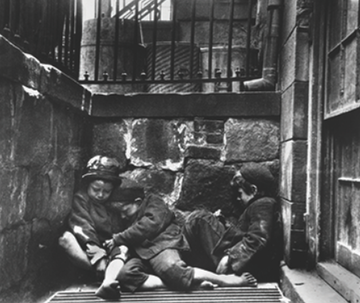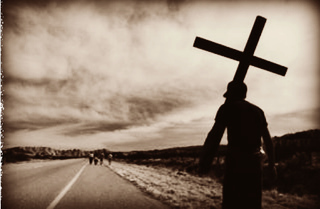“. . . but go rather to the lost sheep of the house of Israel” (Matthew 10:6) There is an interesting nuance to Jesus’ commission to the twelve in Matthew 10: When Jesus instructs them not to preach and heal and cast out demons among the Gentiles and Samaritans, he, however, specifically directs them to “the lost sheep of the house of Israel” (10:6). Again, this seems a verse we read (into) as another “everyone” text, that is “go to everyone in Israel for all of them are lost sheep.” Let’s reconsider: The word Jesus uses for “lost” here in 10:6 isn’t rendered at all very well by English translators. It is a specific word and no-where does it actually mean “lost” the way most of us modern Christians read the word and certainly doesn't carry the weight of a religious overtone of “lost” as in unsaved. The word is ἀπόλλυμι (apollymi, destroyed, banned is actually a good word). As this word is used (and rendered) elsewhere in the NT, a more consistent translation would have been “go rather to the destroyed sheep of the house of Israel.” This nuance changes how we read this charge to the twelve. If the English “banned” (a fair rendering as we shall see) is used, the resulting condition is nuanced to description, namely, of those “who have been shunned to destruction.” In fact, there is even more nuance to be heard from the word and the context. Previously in the immediate paragraph, Matthew depicts the scene in which Jesus has been ministering to the sick, outcast, marginal, disgraced, and poor (9:35). Jesus looks upon this crowd, Matthew narratives, telling us that He “he had compassion for them, because they were harassed and helpless, like sheep without a shepherd” (v. 36b). There is no doubt Jesus and Matthew are drawing upon an Ezekiel context where God interjects, “So they were scattered, because there was no shepherd” (Ezek 34:5). Yet, just before in 34:4, the people, i.e., the sheep, carry the same conceptual (sociological) description as does Matthew 9 and 10 regarding the condition of certain Israelites, i.e., “the lost sheep of Israel”:
Additionally, as you can see in the brackets above, the LXX OT (i.e., the Greek OT) uses the word ἀπόλλυμι (apollymi, destroyed), the same word use by Jesus in his instructions to the twelve in Matthew 10:6. English translators (virtually all) render this word in Ezekiel 34 and Matthew 10 as “lost” (as in “lost sheep”). In both Ezekiel and Matthew, this strong word gives a very subtle description of the people as vulnerable sheep who are “put out of the way entirely, abolished, destroyed.” Elsewhere in the New Testament, this word, ἀπόλλυμι (apollymi, destroyed), is used to give a rather dire description of a person's condition as a result of the actions or behaviors or attitudes of others.
The more accurate rendering of “lost” as destroyed (ruined, banned, shunned) helps to further see an actual sociological condition in the use of “lost sheep” to describe people or a person. In Luke for example, the treasured images of “lost sheep,” then, brings out (for significance and application) a rather different imagination regarding those that are in a condition of “lost.”
In Luke above, we can, then, see that the lost sheep are left alone, unprotected, vulnerable to the elements, lions and tigers and bears (literally), and is, thus, in the condition of “destroyed.” Jesus juxtaposes the restoration given by Zaccharus with His own mission to seek and to save the destroyed, the banned, the shunned. In this latter text, Zaccharus' own salvation is related to making people whole since he contributed to their condition of “ruin" (of being banned, shunned, destroyed). Now returning to the “the lost sheep of the house of Israel” (of Matthew 10:6), we offer a more sociological-rhetorical reading of the verse. While apollymi (“lost” as rendered in most English transitions) in v. 6 certainly is a strong word and “destroyed” is perfectly acceptable as a translation, we should also note that this is the word used to describe those who have been banned from synagogue. Also, the raw, wooden transliterated meaning of this word, apollymi, literally means “from let loose,” “let loose from,” “unloosed”). This is most certainly its meaning later when the local synagogue leadership in Caperneum made plans to “destory” (i.e., ban) the man whose withered hand Jesus had healed: “But the Pharisees went out and conspired against him, how to destroy [apollymi] him” (Matthew 12:14). [Whether the antecedent of “him” relates to the healed man or Jesus, the implication is to be banned from the synagogue.] Finally, given the nature of Jesus’ primary audiences thus far and Matthew’s summaries of His ministry (4:23-25; 9:35-36; et al), perhaps we should read “lost” as “banned sheep of the house of Israel,” specifically identifying the marginal, infirm, mentally unstable, demon-possessed, poor, outcast, and disabled sheep of the house of Israel—all whom would have been shunned away from synagogue life, not just figuratively speaking, but banned from the worshipping and religious life of Israel. Is it no wonder the temple-leadership did not like and was angered (or is that threatened) by Jesus' association with tax collectors and sinners? Leveling and equalizing the idea of “lost” in the Gospel narratives to simply a “we all are sinners in need of salvation” (albeit true, of course) places a barrier to faithful readings that put the poor and the marginalized of society in the purview of sound application in the life of the church (a church).
0 Comments
 Let’s reconsider two Biblical thoughts from our favorite-to-quote-bucket–“take up your cross” and “Whoever finds his life will lose it, and whoever loses his life for my sake will find it” (Matthew 10:38-39)–and see if we can save them from the pile of Christian clichés. We should pay closer attention to the narrative context as we read the text from which these two are found, before we make application: that is, hearing the significance, then making application. Taking up one’s cross is often used devotionally to move Christians toward obedience; and, losing-finding one’s life is often used toward the nonChristian to draw them to Christ. Not bad things (or outcomes), but rather than a general (privatized) application of these–which, by the way, these are toward Christians for faithful perseverance and endurance in the faith, which is the context, e.g., “. . . the one who endures to the end will be saved,” 10:22b–and, thus, a more specific application is warranted. First, the context is specific:
The immediate paragraph context is the strain and conflict between believing and unbelieving household members. Household conflict in general would have threatened heir legitimacy (the reason for the household in the first place in Greco-Roman culture and social construct, to produce and protect a legitimate male-citizen heir), the passing on of wealth and family social standing, and would have put at risk one’s survival . . . so literally one “saves” one’s life through the family/household and “loses” one’s life apart from family (that is, a household under a patriarch, male-head-of-household). This was the Greco-Roman way (in the time of New Testament). This makes better since of Jesus’ words: “Whoever finds his life will lose it, and whoever loses his life for my sake will find it” (Matthew 10:39). Thus, taking up one’s cross (v. 38a) is related to what happens when following Jesus puts one, “for Jesus’ sake” (v. 39b), in a place where one can no longer count on the social construct available for life (literally for survival). So, the significance of this text and these “clichés” is, following Jesus (which this text is about; v. 38b) means to die to (i.e., no longer count on or trust) the ways in which our social constructs and cultural norms provide identity, security, and worth. The Christian’s identity, security, and worth is located in Jesus and in his cross, which, then, sets animosity, alienation, and, potential, hostility in within the world (i.e., society and cultural and institutional place) that currently gives one identity. This is truly Christian discipleship, that is, following after Jesus. This is losing one’s life (i.e., giving up, abandoning, rejecting, not trusting in such social norms--again--for identity, security, and worth) to find real, true life through following Jesus. The question would, then, be what social constructs and cultural norms give us (give you) identity, security, and worth? These we need to die to in order to have real, true life. This is what it means to actually follow Jesus.
|
AuthorChip M. Anderson, advocate for biblical social action; pastor of an urban church plant in the Hill neighborhood of New Haven, CT; husband, father, author, former Greek & NT professor; and, 19 years involved with social action. Archives
February 2024
Categories
All
|
Pages |
More Pages |
|
 RSS Feed
RSS Feed